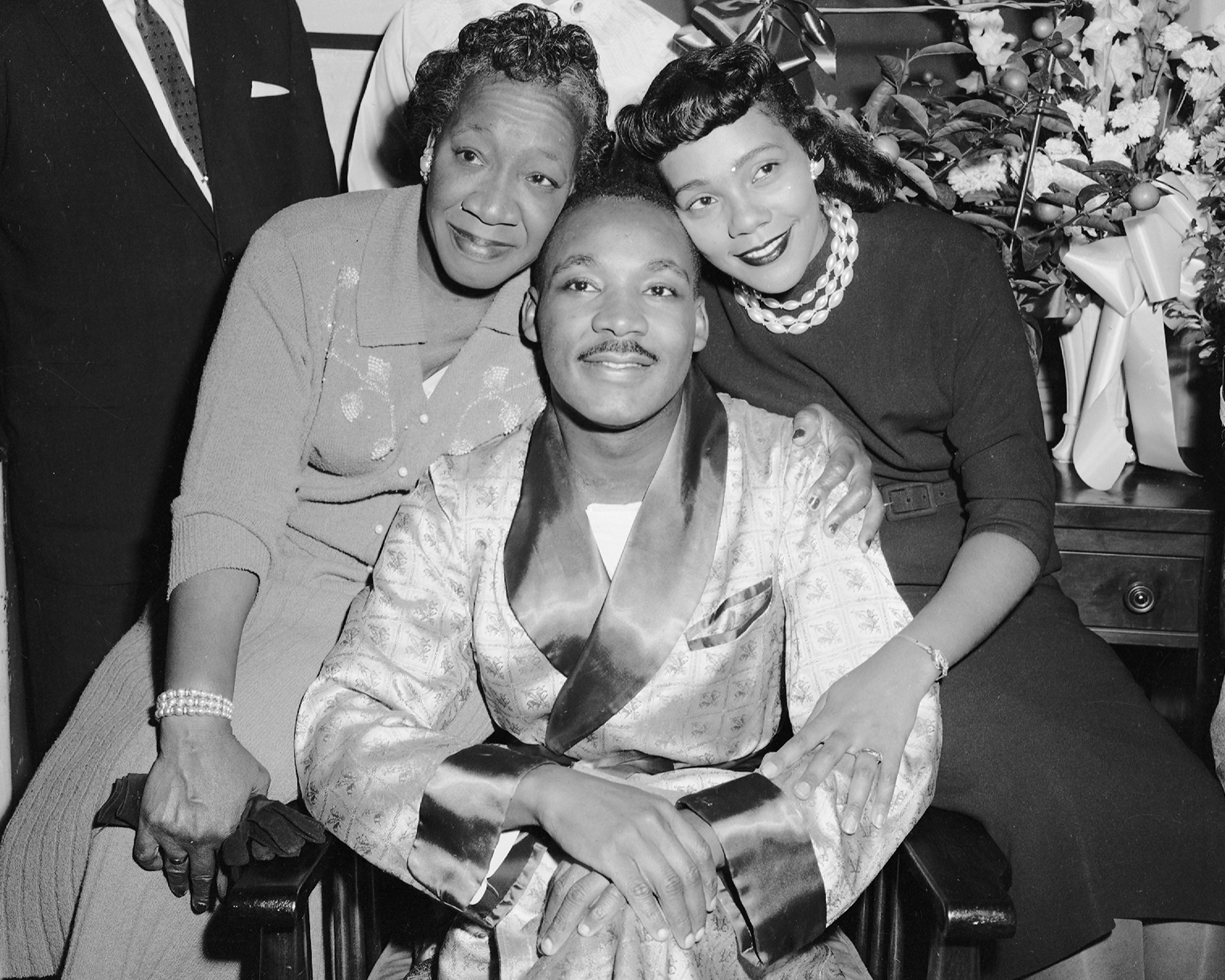
On a hot, humid September day, I walked into Martin Luther King Jr.’s birth home, a two-story Queen Anne style house on Auburn Avenue in Atlanta, entering with a group of visitors from all over the world. Our tour guide was friendly and animated, but I found myself frustrated with his portrayal of the family story, surely a script he was simply repeating.
Of course Martin Luther King Jr. was the center of most of the tales, and then came stories about his father, the great Reverend Martin Luther Sr. What frustrated me was the lack of attention being paid to his mother, Alberta Christine Williams King. This was her childhood home. It was the home where she’d grown up in her parents’ lessons of faith and social justice, the home where she’d mastered her instruments, the home where she’d birthed her children in a room on the second floor. This home held stories of her life that were glossed over.
My frustration only grew when my next stop took me to Ebenezer Baptist Church, just a short walk from the Williams’ house. Here, I was immediately engulfed by the amazing truth that Dr. King had walked past these pews countless times to stand on the altar, first as a young boy and then as the reverend of the church. I was appreciative of the preservation of his presence, but once again, the memory of Alberta was mostly absent. Despite the fact that this church had been led by her parents, that she had re-established the church choir, that she played the church organ, that she was the adored Mama King who led the church alongside her husband, that she was assassinated in the very same building, she had been reduced to an asterisk in the church’s overall importance.
Although Alberta King’s life was crucial to the civil rights movement and it remains relevant for all of us today, like so many other significant Black women, she has largely been erased from history. When we learn her story, however, we not only pay honor where it is due, we also learn about how we arrived where we are as a nation.
Alberta King committed her life to the uplift of others, including her family members, church members and larger community. She was a trained educator and musician who attended Spelman Seminary, the Hampton Normal and Industrial Institute, and Morris Brown College. She used her skills to tutor her husband through college, guide her children on their own educational journeys and teach hundreds of instrumentalists and singers. Although she was not allowed to teach in schools as a result of a marriage bar that prohibited some women from working after they got married, she dedicated her time outside of church and raising her family to organizations like the NAACP, the YWCA, and the International League for Justice and Freedom. Her commitments fulfilled the mission her parents passed on to her and that she knew she needed to pass on to her children.
From the very first times Martin Luther King Jr. was exposed to racism to his rise as one of the most celebrated people in world history, he always sought his mother’s wisdom and comfort. When he was a little boy, he sat with her as she explained the ugly truths of slavery and the civil war and reminded him he was as worthy of dignity as anyone. When he went off to college, he would write his mother letters thanking her for her lessons and he would tell his classmates that she was the best mother in the world. When he began to face more danger for the work he was doing, he checked in with her constantly and reassured her that he was committed to their family’s generational cause no matter the threats waged against him. Alberta worried about her son, but she knew he was meant to bring change the world had never seen before and she could not stand in his way. Even after she tragically lost not only Martin Luther King Jr. but her second son as well, she continued to dedicate her life to the liberation of the most marginalized.
“Every now and then, I have to chuckle as I realize there are people who actually believe ML just appeared. They think he simply happened, that he appeared fully formed, without context, ready to change the world,” Martin Luther King Jr.’s sister, Christine King Farris, wrote in her memoir Through It All. “Take it from his big sister, that’s simply not the case.”
Martin Luther King Jr. was a product of his parents’, and most obviously, his mothers’ teachings and experiences. Through knowing Alberta King’s story we see how beautifully he built on the foundation that was laid for him; we better understand the power of generational knowledge and the longevity of a movement that was here long before his time and will continue long after. This MLK Day, as we celebrate the birth of one of our beloved civil rights heroes, we should also celebrate the woman who birthed him.
Correction, January 26
The original version of this story misstated the name of an organization that Alberta King was involved with. It is the International League for Peace and Freedom, not the International League for Justice and Freedom.
More Must-Reads from TIME
- Cybersecurity Experts Are Sounding the Alarm on DOGE
- Meet the 2025 Women of the Year
- The Harsh Truth About Disability Inclusion
- Why Do More Young Adults Have Cancer?
- Colman Domingo Leads With Radical Love
- How to Get Better at Doing Things Alone
- Michelle Zauner Stares Down the Darkness
Contact us at letters@time.com